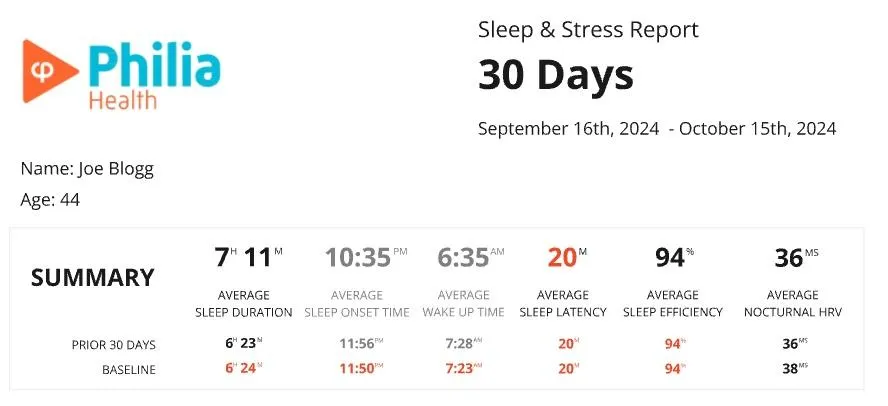
Empowering Autism Care with Wearable Technology for Allied Health Professionals
Why this blog post?
When Alex and I set out to define the unmet needs of autistic individuals and the health professionals who support them, we delved into numerous papers by the Autism CRC, interviewed over 20 health providers, and had in-depth discussions with Dr. Emma Goodall. What emerged was a deeper understanding of the unique challenges faced by both autistic individuals and their clinicians, as well as the pressing need for tailored solutions that provide real-time feedback and personalised strategies.
A few days ago, I realised how important it is to share these insights with you—health providers—so you can see how our learnings can directly support your practice. This post offers actionable solutions to common challenges, helping you deliver more personalised, effective care.
Our hope is that we can learn together how wearable technology like PhiliaHealth can bridge communication gaps, provide objective insights into stress and sleep patterns, and transform the way you support your clients.
Part 1: Understanding How Anxiety and Depression Manifest in Autistic Clients
As clinicians, you will be very familiar with this, so I just want to go through the key points from (Richdale, A. L., et al. (2023) to set the stage for the rest of the post. For autistic individuals, anxiety and depression often present differently than in neurotypical populations. These conditions can include:
Interoceptive Challenges: Many autistic individuals struggle to interpret bodily signals, delaying recognition of stress or emotions.
Heightened Sensory Sensitivities: External stimuli can significantly increase stress levels.
Unique Social Responses: Shutdowns or withdrawal may appear as behavioural concerns but often reflect underlying mental health challenges.
Recognising these nuances is essential for allied health professionals tailoring interventions to meet the distinct needs of autistic clients.
Part 2: Challenges Allied Health Professionals Face in Supporting Autistic Clients
A recent study by the Autism CRC on the experiences of health professionals highlights the key obstacles allied health practitioners encounter (Urbanowicz, A., et al. (2020)):
Communication Barriers: Many autistic adults struggle to articulate their symptoms, making it difficult for professionals to develop effective care plans.
Knowledge Gaps: Over 80% of clinicians expressed a need for more training in communication strategies, behaviour management, and mental health care for autistic clients.
Time Pressures: Limited time during sessions often prevents professionals from fully exploring the client’s underlying issues.
These challenges underscore the importance of tools that enhance communication and provide objective, actionable insights to support care.
Part 3: What Autistic Adults Think About Wearable Biometrics
From August-November 2024, Philia Labs surveyed 133 autistic adults using an online survey on surveymonkey, with recruitment done via social media ads to explore how wearable biometrics might support their mental health and well-being. This was declared beforehand to respondents as a market validation study.
Key findings include:
Interoception Insights: Nearly 48% of respondents reported difficulty recognising bodily needs - anxiety, thirst, toilet - highlighting the potential of wearables to provide clarity.
High Interest in Wearables: Over 90% were eager to use wearables to monitor stress levels and track the effects of daily activities.
Openness to Sharing Data: 69% expressed interest in sharing biometric data with clinicians to improve therapeutic outcomes, especially if the clinician recommended its use.
These insights reveal a significant opportunity for allied health professionals to integrate wearable biometrics into their practice.
Part 4: How PhiliaHealth Supports Allied Health Professionals
Autistic adults often experience sleep challenges such as trouble falling asleep, waking frequently during the night, reduced overall sleep duration, low sleep efficiency (the proportion of time spent in bed actually sleeping), and misaligned daily (circadian) sleep-wake cycles that disrupt their ability to engage in work, education, and social activities (Richdale, Haschek et al 2021).
PhiliaHealth is designed to address the challenges faced by professionals while empowering autistic clients. Here’s how:
Providing Objective Insights: PhiliaHealth tracks autonomic nervous system activity (including fight-or-flight and rest-and-digest states) and sleep patterns, offering clear data to inform care.
Bridging Communication Gaps: For clients who struggle to articulate symptoms, wearable biometrics serve as a powerful communication tool.
Enhancing Client Engagement: By helping clients monitor stress and sleep, PhiliaHealth fosters greater self-awareness and independence.
Supporting Personalised Interventions: Allied health professionals can use PhiliaHealth’s insights to refine therapeutic approaches and achieve better outcomes.
Take the Next Step
Are you interested in learning more about PhiliaHealth or accessing our professional resources? Book a 30-minute call today to explore how we can empower you and your clients.
References
Richdale, A. L., et al. (2023). "Pathways to Anxiety and Depression in Autistic Adolescents and Adults." Depression and Anxiety 2023: 1-12.
Urbanowicz, A., et al. (2020). "The experiences, views, and needs of health professionals who provide care to adults on the autism spectrum." Research and Practice in Intellectual and Developmental Disabilities 7(2): 179-192.
Richdale, A. L., Haschek, A. et al (2021). Supporting mental health: What young Australian autistic adults tell us. Melbourne, Australia, La Trobe University.